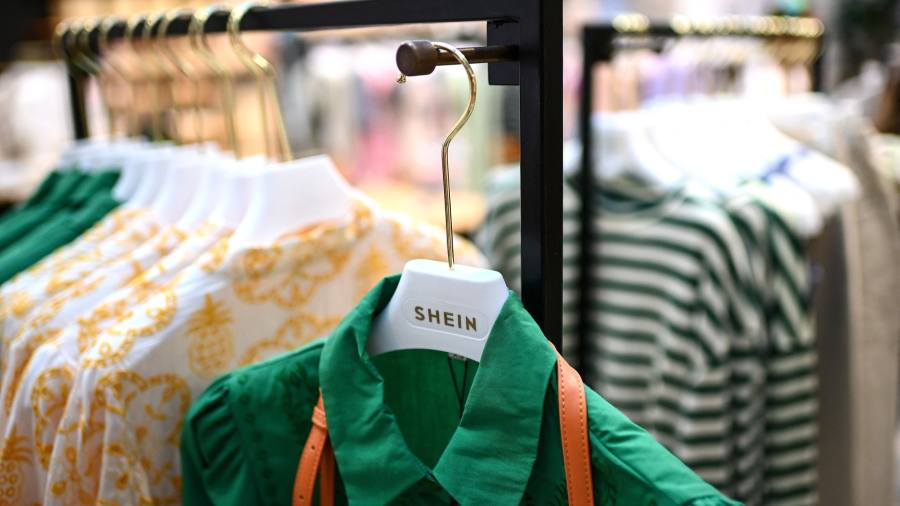Receive free Shein updates
We’ll send you a myFT Daily Digest email rounding up the latest Shein news every morning.
Temu and Shein have rattled the garment industry with their $2 swimsuits and $10 shoes. Now the rivalry between the two Chinese online platforms has come to the fore. Temu is suing Shein in the US.
The pair specialise in “ultra-fast fashion” — clothes designed, made, sold and discarded in days rather than weeks. This may be a game whose only winner is the consumer, no matter which company triumphs legally.
Temu alleges Shein pushed manufacturers into supply arrangements that illegally excluded Temu when it entered the US in 2022. Shein has said the lawsuit is without merit.
The duo’s rapid success means they are becoming a threat online to Inditex and H&M, which also operate extensive store estates.
Shein reportedly has more than three-quarters of the ultra-fast fashion market in the US. Temu is catching up. Its monthly general merchandise value, or total value of goods sold, tripled over three months to $635mn in April. It overtook Shein’s US sales in May.
Shein and Temu are among the world’s fastest-growing start-ups. Both have spectacular private valuations. Shein is worth about $66bn based on a May fundraising. Temu is estimated at more than $100bn, surpassing the market value of parent company PDD Holdings.
Sourcing products quickly from reliable manufacturers is the key to success. Legal documents show Shein buys from more than 8,000 suppliers. Temu claims these represent about 80 per cent of businesses able to supply ultra-fast fashion goods.
Retailers constantly scrabble for supplies while cutting prices. The same dynamic has depressed margins in China’s declining ecommerce sector.
Shares in PDD have dropped 16 per cent in six months as growth slows in China, home market of its Pinduoduo groceries business. At 18 times forward earnings, they trade at a discount to global peers.
The problem for investors is that online ultra-fast fashion platforms compete primarily on speed and cheapness. Margins are under constant pressure. Competitive advantage is transitory. Otherwise, Temu and Shein would not be squabbling over suppliers.
Listen to Lex deputy editor Elaine Moore talk to creators, companies and critics about the next era of social media in the FT’s new Tech Tonic podcast series.
Read the full article here














